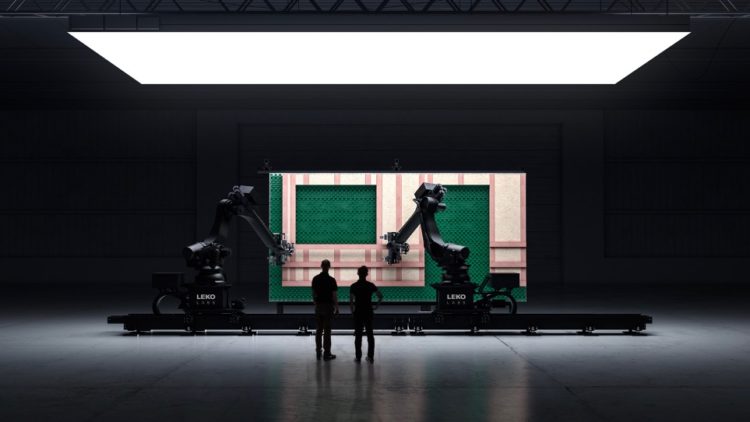The raise is led by urban sustainability-focused fund 2150 with participation from Microsoft’s Climate Innovation Fund, Tencent, AMAVI, Rise PropTech Fund, Extantia, and Freigeist.
Shrinking the carbon footprint of construction must, therefore, be a key plank of global net-zero climate strategy.
Leko Labs bills itself as a “carbon negative” construction company — on account of having developed a novel wall and floor system based solely on wood and wood fiber which it says is capable of replacing up to 75% of concrete and steel currently used in constructing a single building.
Its wood composite product is built to withstand high compression loads (30,000x its own mass, is the claim); and — if sourced from sustainable forestry, meaning trees felled for timber are replanted; and assuming a long, productive lifespan to the material/building — it should sequester substantially more carbon vs a traditional build made using concrete and steel which require extremely energy-intensive processes to manufacture.
Leko Labs’ claim is that it’s more sustainable construction method can save “thousands” of tonnes of CO2 vs traditional approaches.
Additionally, the startup says its engineered wood can yield superior insulation properties for buildings that also have thinner walls — meaning both better heating/cooling performance (it says its wall system can reduce heating/cooling needs by up to 87%) and up to 10% more floor space vs traditionally constructed buildings.
Read more Tech Gist Africa:
Mexican fintech company delt.ai Secures Debt Financing by Processing $25M in Digital Assets
Viva Translate Announces $4M Funding
FloodFlash, a London-based insurtech company Raises $15M














